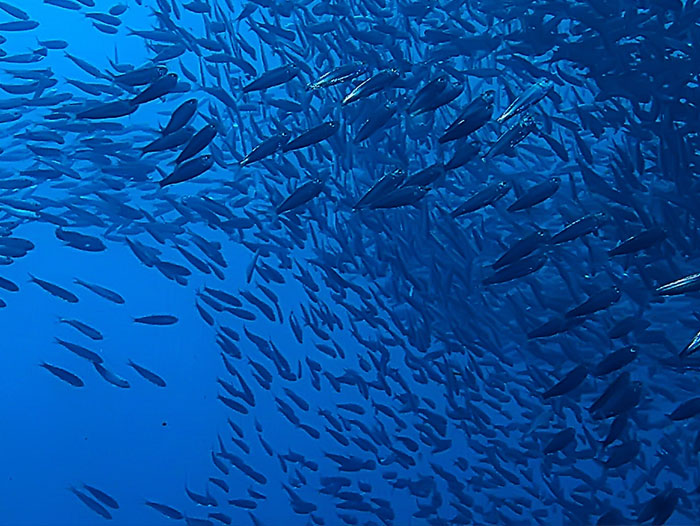Two Thirds of Seafood Consumers Call for “Radical or Significant” Change to Feed Growing Population
January 29, 2020 | 4 min to read

A major survey of seafood consumers across seven countries in Europe, Asia, and North America has found widespread concern about the environmental and social impacts of food, with two thirds (63%) calling for “radical” or “significant” change to feed the world’s growing population.
The survey of over 7,000 seafood consumers in Germany, France, The Netherlands, China, Japan, Canada and the USA was carried out by Globescan on behalf of the Aquaculture Stewardship Council (ASC) in summer 2019.* While it found variations between countries, especially when it comes to the frequency and way seafood is consumed, support for better protection of the environment and workers when it comes to food production was generally high around the world.
A major finding of the survey was a significant desire for information about sustainability, as well as independent verification of brands’ sustainability claims. Across the seven countries, 71% of seafood consumers said that supermarkets’ or brands’ claims about sustainability should be clearly labelled by an independent organisation. When it comes to trusted labels, 84% of seafood consumers said they would have trust in the ASC label. Further evidence of this demand for more information is in the 63% who said they wanted to hear more from brands about the sustainability of their products.
Demand for responsibly produced food also appears to be driving shopping habits, with two thirds (62%) saying they want to shop at a place with lots of responsibly produced seafood. This is tied in with a clear wish among the majority of seafood consumers around the world to do their part to improve food production practices and fight other global issues. Two thirds (63%) want to use their purchasing decisions to reward responsible seafood farmers, while a similar amount (64%) want to help fight climate change with their food choices. Social issues are also important to seafood consumers, with 69% reporting that it is important that workers in the industry are fairly treated.
“Consumers around the world are very aware of the shared challenges we face when it comes to feeding a global population while preserving our natural resources and protecting those that provide our food,” said Chris Ninnes, CEO of ASC. “Encouragingly, the majority of people are also keen to make choices to help address these problems.”
The survey also looked at attitudes towards seafood, and eating habits in different countries. It found that over half of seafood consumers around the world (51%) don’t have a preference between wild and farmed fish. Similarly, most (69%) either purchase a mix of farmed and wild fish or are unaware of whether their fish is farmed or wild. Of the rest, 14% said they usually bought farmed and 17% wild. Of those who expressed a preference for farmed fish, the top reason given for this preference was that it can help to preserve wild stocks (29%).
“Farmed fish plays an essential – and growing – role in meeting global demand for seafood,” said Chris. “This research indicates that consumers care a lot about whether their seafood was responsibly produced according to a standard that they can trust, and that’s where ASC certification can play a role.”
Comparing results between countries suggests some interesting differences. For example, more consumers in Canada and USA expressed a love of seafood (31% and 28% respectively of general consumers said they “really liked” seafood), than in China and Japan (24% and 21% of general consumers respectively). However, Chinese and Japanese consumers were the most likely to say that they consumed seafood every day (16% and 14% of general consumers, compared to a global average of 6%). This suggests that in these countries seafood is seen as a normal part of an everyday diet, whereas in Canada and USA it is seen more as an occasional treat. Overall, the survey suggests an enduring popularity for seafood, with over three quarters (78%) of general consumers saying they had purchased seafood in the past two months.
*In summer 2019, Globescan surveyed 7,000 seafood consumers in seven countries: USA, Canada, Germany, France, The Netherlands, China and Japan. Seafood consumer is defined as those respondents in a household where someone had purchases seafood in the past two months and/or who regularly eat seafood at home or in a restaurant.. A wider sample of 10,000 consumers (not just those who had recently purchased seafood) were surveyed in the seven countries. All results above are taken from the survey of 7,000 seafood consumers, except for those in the final paragraph which are taken from the wider survey of 10,000 general consumers. Survey data is weighted to reflect each country’s demographic composition by gender, age, and education, according to the latest available census data.
About the ASC
The Aquaculture Stewardship Council (ASC) is an independent, not-for-profit organisation co-founded by the World Wildlife Fund (WWF) and The Sustainable Trade Initiative (IDH) in 2010 to manage the certification of responsible fish farming across the globe.
The ASC standards require farm performance to be measured against both environmental and social requirements. Certification is through an independent third party process and reports are uploaded to the public ASC website.
The on-pack ASC logo guarantees to consumers that the fish they purchase has been farmed with minimal impacts on the environment and on society.
For more information about ASC please visit www.asc-aqua.org.
